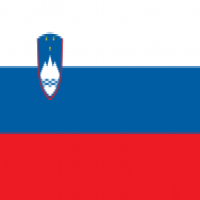Summary:
A consortium of Slovenian public research organizations has developed a new method and device for disinfection of water without chemicals. The method has been validated by a laboratory prototype. The researchers are looking for hydroponic plant production farms for technical cooperation and joint venture to further develop commercial water cleaning devices for hydroponic systems.
Description:
A multidisciplinary team of researchers of two Slovenian public research institutes and Slovenian university have invented a method and constructed a device for efficient deactivation of viruses (and other microorganisms) in water. The proposed innovative technology is completely chemicals-free and eco-friendly.
The solution combines two environmentally friendly methods, cold gaseous plasma and hydrodynamic cavitation, which efficiently inactivates waterborne viruses. For example, many important human pathogenic viruses can be transmitted by water and cause mild to severe gastrointestinal problems, more serious health complications and even death. On the other hand, plant viruses can destroy entire crops and results in high economic losses for the plant owner.
After intensive market and technology research, the team aims to develop the device for water disinfection in irrigation systems for hydroponic farming. This is an initial application area. However, the technology has a wider potential in other applications such as wastewater treatment and processing of drinking water or disinfecting heavily polluted hospital water.
The team has all the necessary knowledge, infrastructure and resources to build and modify the prototypes, perform laboratory testing and microbial analysis, and monitor the efficiency of the sterilization process. Members of the team have been involved in industrial research and development for over 10 years. The team members developed an industrially implemented technology for plasma treatment of surfaces, obtained the EU patent, constructed the production line, and optimized the production at the large industrial company which has over 50% of the global market share in the segment of composite commutators for car pumps.
The team is willing to establish a spin-out company to develop and commercialize the devices which are able to lower the virus concentration 4-5 log for smaller volumes, i.e., 60 L/h, with a possibility to scale up more devices for bigger volumes in applications for closed irrigation systems and highly-contaminated discharge water from hospitals. Currently, the team does not need any help with the development of the device for installing it in a pilot system. Still, the team would require a partner to provide the space and hydroponic facility for installing a pilot system and further extensive testing and development of the water disinfection device under technical cooperation agreement.
The researchers do not have financing resources to finance the partner under technical cooperation agreement. The partner should be able to invest and allocate their resources in the project. Slovenian researchers' consortia will also seek public funds (preferably EU structural and/or regional funds). In case of interest of the partner sought, they are willing to apply with the partner for a project worth 2-3 M€.
In case of successfull testing of a pilot system the researchers are considering to establish a strategic partnership with a company which could contribute to the commercialization in return for obtaining the shares in the planned spin-out company.
Type (e.g. company, R&D institution…), field of industry and Role of Partner Sought:
Hydroponic crop production farms are sought for cooperation under the following agreements.
- Technical cooperation agreement:
to cooperate in building a pilot water disinfection system for hydroponic irrigation under test. The partner should be able to provide space, hydroponic facility and a batch of crops to be extensively tested with specific plant viruses. After successful technical cooperation, a partner might get the ownership of the pilot/operating system.
In addition to the partner with ability to provide the hydroponic facility, the project partners would be academic institutions (experts in plasma science, hydrodynamic cavitation, virology), equipment producers (treatment chambers, pumps, powerful plasma sources, installation devices), and companies specialized in automation, software, remote control, etc.
- Joint venture agreement:
to commercialize the solution. A specific partner's contribution would be in the detailed market assessments, final development of variations of commercial product. The possibility to invest in manufacturing, measurements and calibration, certification, counselling, product support, customer acquisition and marketing, would be a surplus.
Stage of Development:
Prototype available for demonstration
Comments Regarding Stage of Development:
The researchers have developed and successfully tested a prototype of the device in a laboratory environment. The optimized version of the laboratory prototype enables smooth operation and highly repeatable results. Long-lasting experiments have not been performed yet. The researchers have tested the device on a model virus and have accomplished total virus inactivation. They have used 10- to 1000-times higher virus concentrations that can be found in nature (treatment time varies, of course). As a next step, the team plans to build a pilot system in a partner's hydroponic farm.
IPR Status:
Secret Know-how,Patent(s) applied for but not yet granted,Exclusive Rights
External code:
TOSI20201229001








